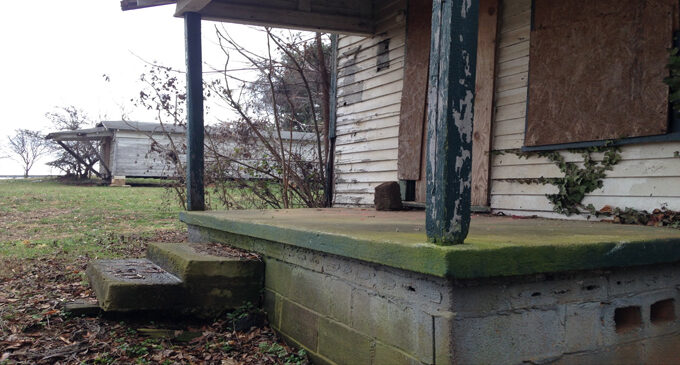Happy Hill rezoning of historic shotgun houses as a cultural site in limbo

After several acres of land in the Happy Hill neighborhood were almost sold last month, the Happy Hill Neighborhood Association (HHNA) and Housing Justice Now, is calling on Councilmember Annette Scippio to do her part to help preserve the history and heritage of Happy Hill.
In a joint press release issued last week, the organizations called for the immediate rezoning of two historic shotgun houses located on Humphreys Street as a cultural site.
The history of Happy Hill dates back to the 19th century. In October 1836, 18 formerly enslaved and five free African Americans left Salem for Millsberg, Liberia. Seventeen of these emigrants had been owned by Friedrich Schumann, laboring on his plantation here on the high ground south of Salem. In 1872, after the Civil War and emancipation, the Salem Congregation established a neighborhood for freedmen on Schumann’s former plantation. The neighborhood initially was known as Liberia, recalling those who had emigrated. By 1874, the name Happy Hill was used for the neighborhood, which grew steadily between 1880 and 1920.
Around that same time, many shotgun houses began to pop up throughout communities in the South. Relatively inexpensive to construct, the shotgun house is a rectangular, one room wide, and up to three rooms deep with a front porch. This architectural style originated from Yorubaland (West Africa) via Haiti to the American South. The word shotgun itself is derived from the Yoruba word “to-gun.” In Yoruba, this word means ‘place of assembly’ or where people gather.
Following the Civil War and through the 1920s these dwellings became a symbol of Black American freedom. Since 2017 Triad Cultural Arts, Inc., a nonprofit, community-based, multi-disciplinary cultural arts organization, has been trying to preserve two shotgun houses that are still intact in the 700 block of Humphreys Street. “We want to preserve these symbols of freedom. They’re small dwellings but they have such a large story,” said Cheryl Harry, executive director and founder of Triad Cultural Arts, in a video recorded in 2018.
In the video titled “Preserving Happy Hill,” Harry also discussed plans to use one of the houses as an exhibit space where you can learn about the history of Happy Hill.
“The plan is to have Happy Hill established as a historic neighborhood and to have these two houses as the gateway into the community and be the landmark structures for our heritage center,” Harry said.
Although talks about the heritage center and preserving Happy Hill have been discussed for years, over the past month the future of Happy Hill has been in question after the City was prepared to sell nine acres of land, including the two shotgun houses, to the Arts Based School.
The Arts Based School currently houses grades K-1 at the former Diggs Elementary, which is located in the Happy Hill neighborhood. With the additional nine acres of land, the school had planned to expand and add a grade each year until the school serves grades K-8.
The Arts Based School eventually withdrew their offer to buy the property after members of the HHNA and others complained about the need for affordable housing in the area and that plans were moving forward without involving those who live in the neighborhood. A statement released on the school’s Facebook page said, “The Arts Based school stands in unity with the Happy Hill Neighborhood Association’s plans to develop more affordable housing units for families.”
When discussing the sale of the property in Happy Hill, Scippio made it clear that she thought it was a good idea to bring a school to the neighborhood. She said, “You never expect to have so much dissension over something that has the possibility to be so good for a neighborhood.”
Although the offer had been withdrawn by the time of a town hall meeting to discuss the future of Happy Hill on Sept. 28, Scippio used it as an opportunity to double down on her stance to sell the land. She mentioned that a quality education is one way out of poverty and that Black children don’t have access to quality schools.
Since the offer was withdrawn, the HHNA and Housing Justice Now claim that Scippio is retaliating by threatening to cancel the plan to rezone the shotgun houses and Happy Hill as a historic site.
The joint statement reads, “ABS graciously pulled out of that agreement, but now Councilwoman Scippio is retaliating by threatening to cancel the plan to rezone the shotgun housing as a cultural site, something the community has been asking for and working toward over several years.









